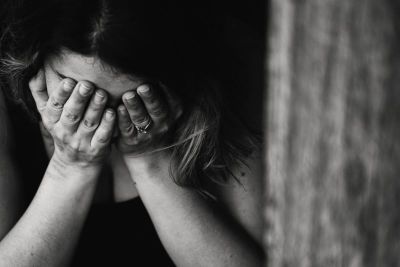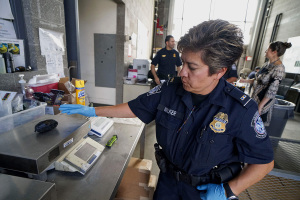Marking National Grief Awareness Day With Resolve

August 30 is National Grief Awareness Day, which is a worthy observance. Grief is something every human being will inevitably experience. It's a powerful emotion that goes to the deepest part of our nature as social creatures. We all bond to someone at some time, and when we lose that person, we experience a vacuum that can affect every part of our lives. For some, grief is utterly debilitating—and can be lifelong.
In my nearly 40 years as an evangelical minister, I've seen my share of grief. Whether it is at a funeral, or in an emergency room, or after a national tragedy. Of course, I've known grief myself, after the death of my parents; in my daughter after her long-delayed first pregnancy ended in miscarriage; and, like all Americans, as I grieved almost overwhelmingly when I served as a relief chaplain at Ground Zero in the aftermath of 9/11. I had lost a friend in that attack and we all lost an innocent sense of security in our beloved homeland.
This National Grief Awareness Day I will have a new group of people on my heart and mind—the survivors of those lost to gun violence. Since getting involved in this issue through a documentary film project, and after talking with the loved ones, friends, and colleagues of gun violence victims, I've detected a level of suffering in them different from that of others who have lost people under different circumstances. Just the presence of a firearm, a weapon specifically designed to kill, in the equation of death brings an added sense of supreme injustice—supreme insult to the dignity of human life; supreme anguish, anger, outrage, and personal offense—that simply do not attach to most other experiences of mourning.
Let's all stop to think, care about, and pray for those who grieve the loss of their cherished ones on National Grief Awareness Day. Let's also match that sentiment to our actions to bring about an end to the senseless and deliberate taking of life. In my ministry to the loved ones of gun violence victims, I have found that a reason for their added pain is the haunting knowledge that something could have been done in advance to deny the perpetrator access to a firearm. In too many instances, something was known about the killer before the deadly act was committed. That information should have been enough to have called for some form of intervention resulting in the weapon being taken from the one likely to misuse it. "Red Flag Laws" are a good example of what can be done. These laws permit family members or law enforcement officers to petition for a court order temporarily removing firearms from individuals who present a danger to themselves or others.
In honor of those who grieve, let us resolve that we will do everything possible to stop the avoidable loss of life due to the misuse of firearms. Preserving life is far more valuable than preserving easy access to deadly weaponry. Limiting access to lethal firepower won't ameliorate the grief so many are already experiencing on this day, but it most certainly will relieve some of that same agony in the future.



























